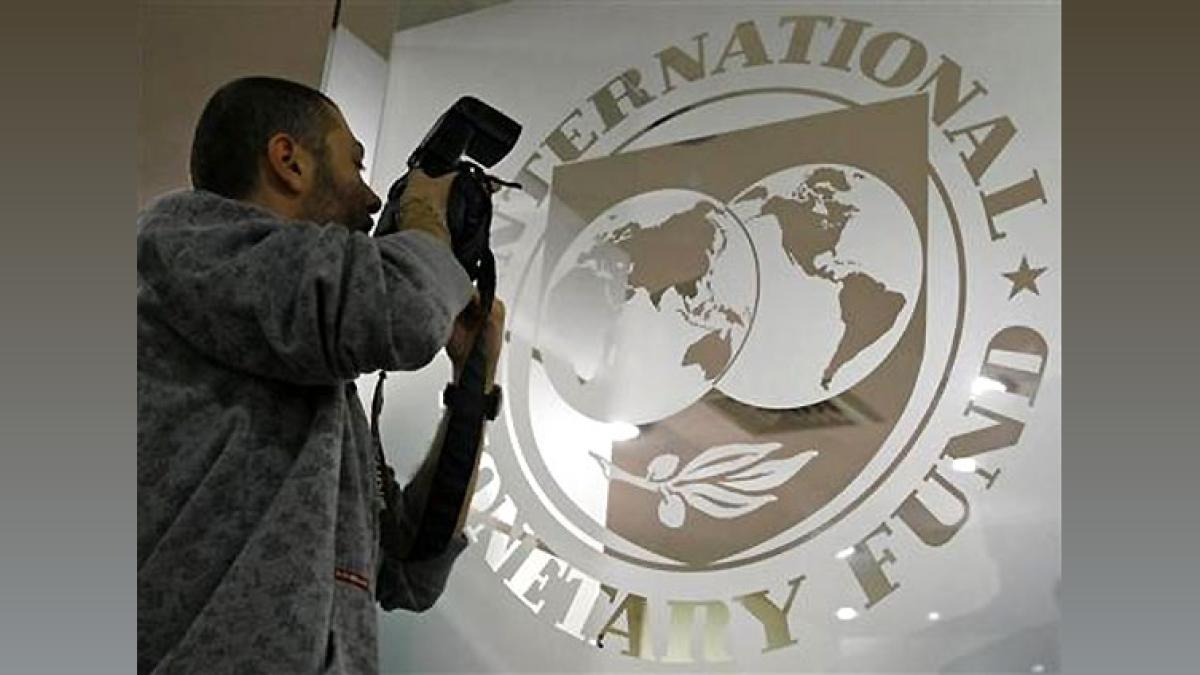IMF Identifies Governance Shortcomings in Pakistan - Reforms Proposed
x
The IMF has highlighted key governance weaknesses in Pakistan, including politicised civil service, weak accountability, and short-term focus, prompting recommendations for reforms.

Islamabad, Apr 15 (PTI) The IMF has identified the politicisation of civil service, weak organisational accountability and excessive focus on short-term goals among the key shortcomings in Pakistan's governance, which contribute to broader governance weaknesses and increase vulnerability to corruption, a media report said on Tuesday.
The observations were made following the conclusion of a 12-day visit by the International Monetary Fund's legal mission, led by Joel Turkewitz, which was the second such visit in as many months, The Express Tribune newspaper reported.
During the visit, the mission engaged with around 30 organisations and departments as part of finalising the Governance and Corruption Diagnostic Assessment report. However, some of the planned meetings could not take place.
The report, expected to be made public by August, will give recommendations for ensuring greater transparency and improving the public sector delivery by minimising the chances of corruption and through merit-based decisions.
The sources said that the IMF mission held the concluding meeting with the Pakistani authorities on Monday and shared its initial assessment. But the detailed report will be handed over later on.
Neither the Cabinet Division nor the IMF resident representative to Pakistan responded to requests for comments.
One of the main findings of the mission was that Pakistan's civil service was highly politicised, according to the sources. Not only that, the heads of the state-owned enterprises and their boards were appointed under political considerations, said the sources privy to these discussions.
The Pakistan Muslim League-Nawaz government changed the boards of eight out of 10 power distribution companies last year. However, the boards of Hyderabad and Sukkur power distribution companies were not changed due to an understanding with the Pakistan Peoples Party.
Power Minister Sardar Awais Legahri now publicly criticises the performance of these two companies, which contributed to the overall power sector losses during the first half of this fiscal year. The IMF assessment of the politicisation is also in line with the prevailing situation in the bureaucracy.
The key positions are said to be mostly filled with people having allegiance to the political leadership. In addition to political patronage, civil servants also get protections from their seniors and often serious corruption crimes remain unpunished.
One of the findings was that there had been no uniformed anti-corruption policy and the anti-corruption measures were mostly event or organisation based and various entities were responsible for minimising the menace.
The National Accountability Bureau (NAB), the Federal Investigation Agency (FIA) and the provincial anti-corruption departments are responsible for ending corruption in the government. However, there has not been any consistent anti-corruption policy.
The sources said that another important area in the IMF report would be the weakness of organisational accountability in Pakistan.
They said that during its interactions with the Pakistani authorities, the IMF particularly identified the departments of the Auditor General of Pakistan (AGP) and the Competition Commission of Pakistan (CCP).
The role of the office of the AGP is to ensure that the public funds are prudently spent and are not embezzled, while the CCP is mandated to ensure there is no cartelisation or monopoly and the market is functional on the basis of fair play.
However, the CCP has been handing over decisions against associations like the Pakistan Sugar Mills Association (PSMA) but still, the PSMA is part of every important decision on the pricing of sugar.
According to the IMF's assessment, the sources said, there is also a lack of risk prioritisation among the government organisations that causes weak governance and increased corruption vulnerabilities.
The sources said that the IMF also observed that judicial processes in Pakistan were lengthy and slow and as a result, there was a huge backlog of court cases.
The observations were made following the conclusion of a 12-day visit by the International Monetary Fund's legal mission, led by Joel Turkewitz, which was the second such visit in as many months, The Express Tribune newspaper reported.
During the visit, the mission engaged with around 30 organisations and departments as part of finalising the Governance and Corruption Diagnostic Assessment report. However, some of the planned meetings could not take place.
The report, expected to be made public by August, will give recommendations for ensuring greater transparency and improving the public sector delivery by minimising the chances of corruption and through merit-based decisions.
The sources said that the IMF mission held the concluding meeting with the Pakistani authorities on Monday and shared its initial assessment. But the detailed report will be handed over later on.
Neither the Cabinet Division nor the IMF resident representative to Pakistan responded to requests for comments.
One of the main findings of the mission was that Pakistan's civil service was highly politicised, according to the sources. Not only that, the heads of the state-owned enterprises and their boards were appointed under political considerations, said the sources privy to these discussions.
The Pakistan Muslim League-Nawaz government changed the boards of eight out of 10 power distribution companies last year. However, the boards of Hyderabad and Sukkur power distribution companies were not changed due to an understanding with the Pakistan Peoples Party.
Power Minister Sardar Awais Legahri now publicly criticises the performance of these two companies, which contributed to the overall power sector losses during the first half of this fiscal year. The IMF assessment of the politicisation is also in line with the prevailing situation in the bureaucracy.
The key positions are said to be mostly filled with people having allegiance to the political leadership. In addition to political patronage, civil servants also get protections from their seniors and often serious corruption crimes remain unpunished.
One of the findings was that there had been no uniformed anti-corruption policy and the anti-corruption measures were mostly event or organisation based and various entities were responsible for minimising the menace.
The National Accountability Bureau (NAB), the Federal Investigation Agency (FIA) and the provincial anti-corruption departments are responsible for ending corruption in the government. However, there has not been any consistent anti-corruption policy.
The sources said that another important area in the IMF report would be the weakness of organisational accountability in Pakistan.
They said that during its interactions with the Pakistani authorities, the IMF particularly identified the departments of the Auditor General of Pakistan (AGP) and the Competition Commission of Pakistan (CCP).
The role of the office of the AGP is to ensure that the public funds are prudently spent and are not embezzled, while the CCP is mandated to ensure there is no cartelisation or monopoly and the market is functional on the basis of fair play.
However, the CCP has been handing over decisions against associations like the Pakistan Sugar Mills Association (PSMA) but still, the PSMA is part of every important decision on the pricing of sugar.
According to the IMF's assessment, the sources said, there is also a lack of risk prioritisation among the government organisations that causes weak governance and increased corruption vulnerabilities.
The sources said that the IMF also observed that judicial processes in Pakistan were lengthy and slow and as a result, there was a huge backlog of court cases.
You May Like To Read
TODAY'S MOST TRADED COMPANIES
- Company Name
- Price
- Volume
- Vodafone-Idea-L
- 11.65 (+ 3.56)
- 106772451
- Alstone-Textiles
- 0.28 ( -3.45)
- 44187760
- Mangalam-Industrial
- 0.88 ( -2.22)
- 39177573
- Sunshine-Capital
- 0.27 (+ 3.85)
- 35956340
- GMR-Airports
- 104.40 (+ 6.37)
- 30453005





